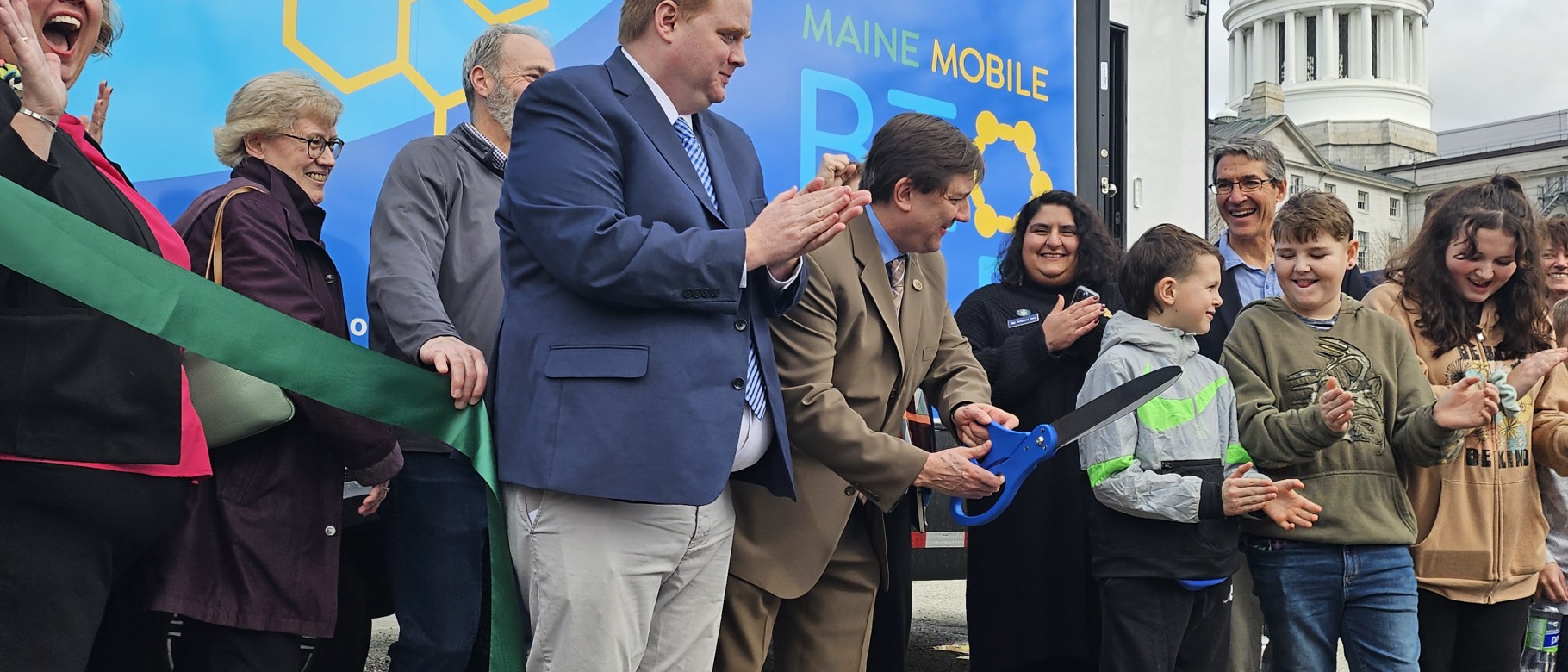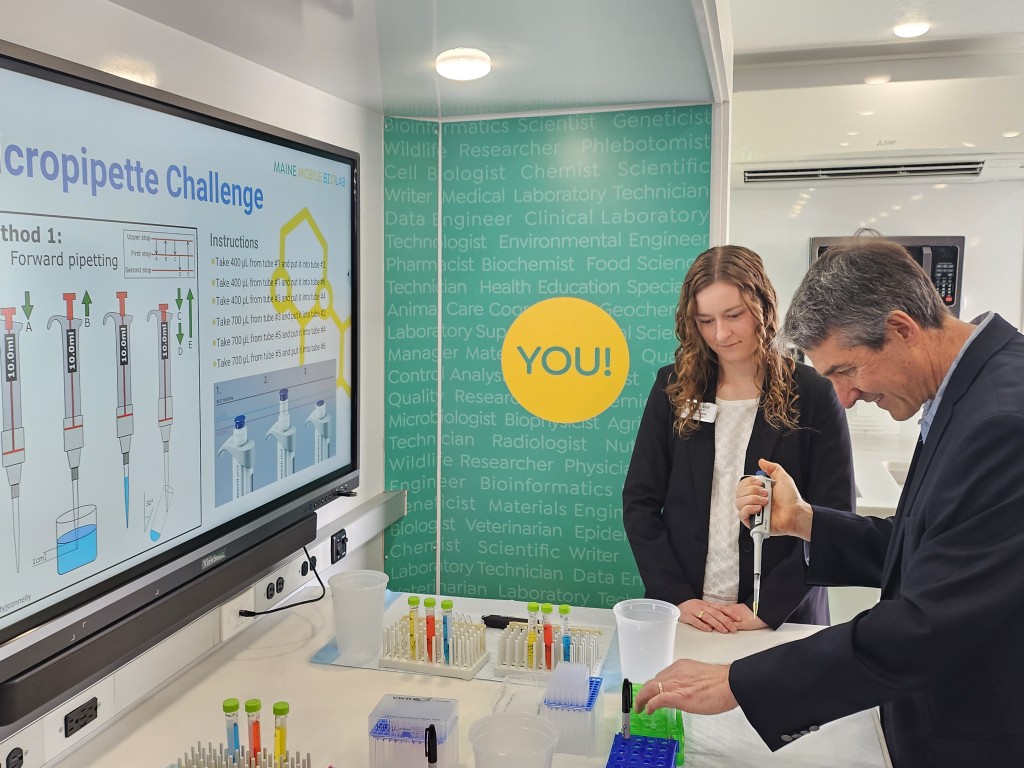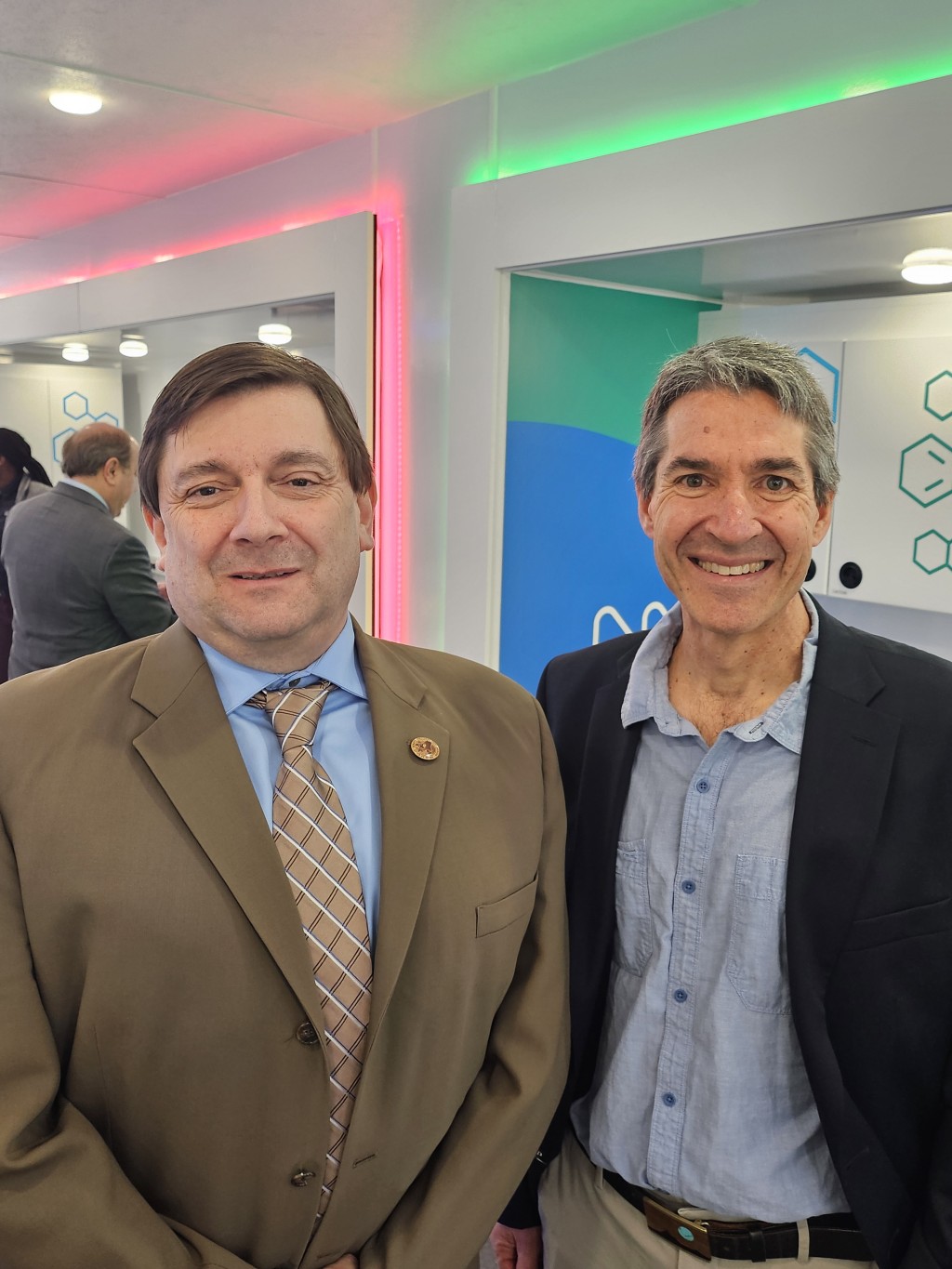UNE sponsors mobile STEM learning laboratory with eye toward workforce growth
The new mobile lab will provide learning opportunities for high school students in Maine’s underserved communities

As Maine’s biotechnology sector continues to grow, the University of New England is doing its part to help students in underserved communities across Maine be more engaged in biosciences education.
The University has partnered with Educate Maine to sponsor the organization’s “Maine Mobile BIOLAB,” a traveling trailer retrofitted into a state-of-the-art lab for experimentation in the fields of science, technology, engineering, and math (STEM).
The BIOLAB is 50 feet long, weighs about 20,000 pounds, and contains lab benches, seating, audiovisual displays, and storage for both standard and cutting-edge laboratory tools, from pipettes to microscopes, according to a release from Educate Maine. Built on an RV chassis, the lab can hold about 25 students at one time and will be towed from site to site by a professional hauler.
While some high school districts have STEM labs and courses, smaller and more rural districts may lack the resources to offer robust programming in the life sciences. According to Educate Maine, the mobile science lab aims to meet students where they live and learn, engaging them in the life sciences with an emphasis on rural and under-resourced communities.
The lab was launched in a ribbon-cutting ceremony at the State House in Augusta on March 6, and its first official stop will be next week in Fort Kent, followed by 11 more sites across the state this school year.
According to the Bioscience Association of Maine (BioME), there are currently more than 9,000 life sciences jobs available in Maine, and high-paying jobs in the sector have grown 42% in the last five years.
The University of New England has responded to this unprecedented growth by expanding its research capacity in the biomedical sciences and engaging students in novel, faculty-led projects that aim to better understand and treat human disease — a direct reflection of the University’s strategic priorities to make UNE a powerhouse of research innovation for the state of Maine.
In line with this vision, UNE inaugurated the Portland Laboratory for Biotechnology and Health Sciences this past fall. Housed on the aptly renamed Portland Campus for the Health Sciences, the lab fosters collaborative, interdisciplinary research to address local and global needs while contributing to — and forming valuable research partnerships within — Maine’s growing biosciences landscape.
And, in January, the University announced it is the recipient of $10.8 million from the National Institutes of Health (NIH) to fund a Center of Biomedical Research Excellence (COBRE) called the Center for Cell Signaling Research. The center, the second COBRE award to UNE, will study the cellular mechanisms behind human disease, with the goal of developing novel treatments to some of the most pressing health issues of our time.
“In our research laboratories at UNE, we give students the hands-on learning experience that prepares them for the jobs of the future,” remarked Ian Meng, Ph.D., professor of Biomedical Sciences and director of UNE’s Center for Pain Research, the University’s first NIH-funded COBRE. “Our partnership with Educate Maine and the Mobile BIOLAB will bring these experiences to kids throughout Maine, allowing them to see what’s possible and dream big.”
BioME, the Roux Institute at Northeastern University, IDEXX, the University of Maine System, MaineHealth, and Yokogawa Fluid Imaging Technologies (Flow-Cam) are additional partners on the project. Funding for the learning lab was made possible with support from the Maine Legislature and Maine’s Congressional delegation.

